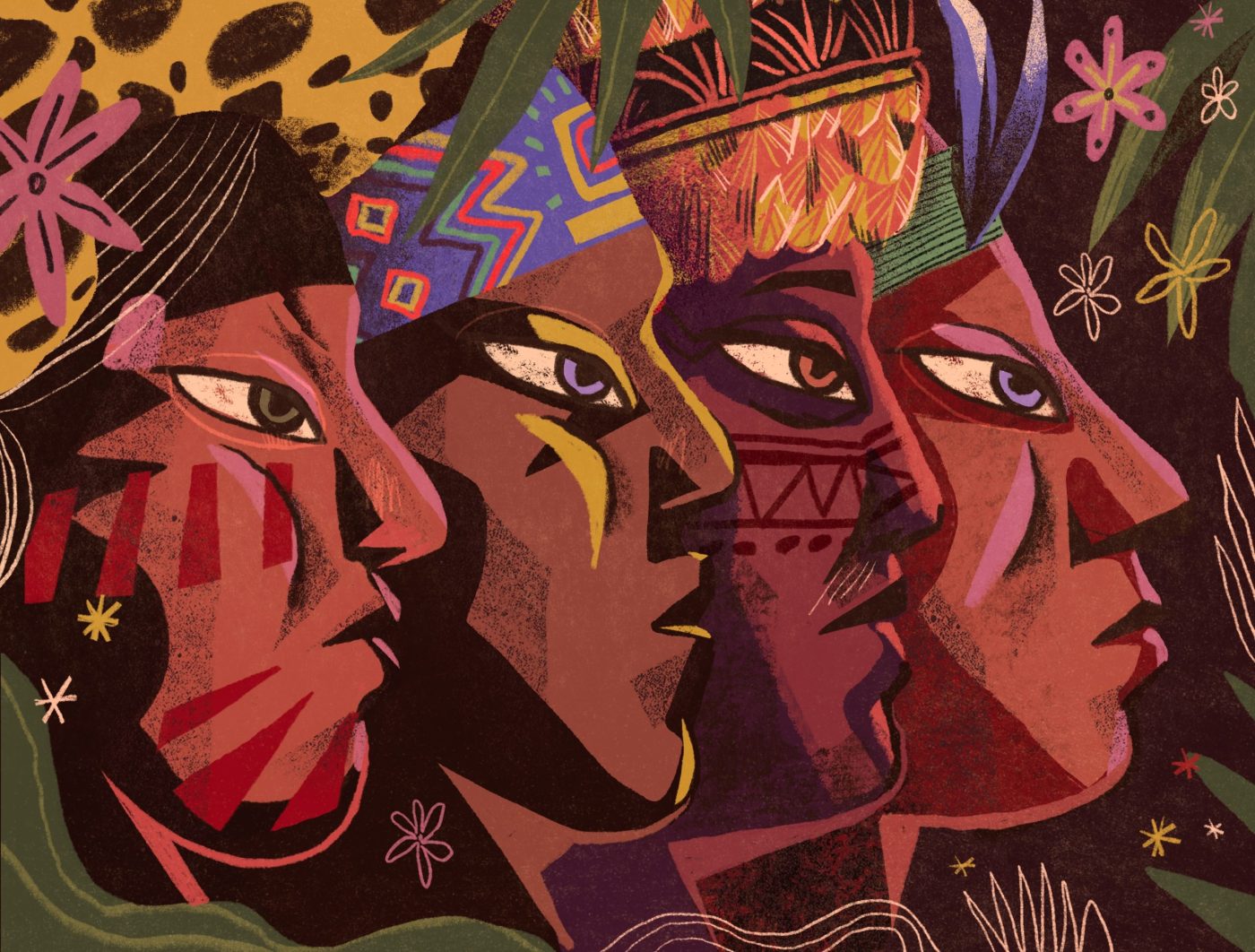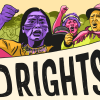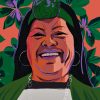Below you will find the powerful words of the Apu Kukama Alfonso Lopez Tejada. In this interview he tells us what the territory means to him and to the other Apus of the Cuatro Cuencas, the precedent set by the first sentence of September 2021, and what he is asking of the international community.
This interview made one thing clear: the defense of the territory is the defense of life.
Alfonso Lopez Tejada is the leader (Apu) of the Cocama Association for the Development and Conservation of San Pablo de Tipishca (ACODECOSPAT). It is formed by sixty communities of the Kukama, Kukamiria and Urarinas people of the Loreto region of Peru. At the same time, they are part of the Cuatros Cuencas community of the PUINAMUDT platform.
On the importance of the territory for the Indigenous communities:
“It has always been a priority of ours, an effort of the Cuatro Cuencas and our affiliated organizations, in the spaces where we are, from the towns where we are, to think about what territory means to us. That is why we have life plans, plans for a full life. That is why we call it Mother Earth and we give different names to the space where we live, which we also call territory. But it is not a fragmented territory, it is not a fragmented land.
We know how to use our forest. But now, they want to teach us how to conserve the forest. They don’t realize [ The State, the oil company] we [Indigenous people] have great knowledge to do forest conservation. The territory and this lawsuit began many years ago within the unity of the Cuatro Cuencas for the defense of life. [We are not only defending] the land, the forest, the microorganisms, not only the environmental rights of the planet, no. We’re defending life, the life of human beings. The life of Indigenous peoples. The life of the Kukama people and the future of our children.
We are not able to passively wait, we have to demand this, we have to teach them [The State, the oil company]. We have to value the territory as territory, as land, as mother, but we also have to look at it as our life. Because everything is there for us to be able to live. And we have not learned to use the resources and the territory with all the diversity that exists in it, in the university. We have learned it, we have recognized it, we have respected it, because we were born there, because we live there, and because we value it as it is in order to continue to exist.”
On the first legal sentence, and the need to recognize an integral territory:
“It has come to our attention that a decision of a Judge must recognize the right of integral titling. We have to say it in those terms, adjusting to the new model of western culture. Integral territory. For us it has always been the territory. The oxbow lake, the forest, the animals, the air, the water, the depth, and the spirits that give us life so that we can defend them and continue feeling Kukama, continue feeling indigenous. Because therein lies the nourishment of the permanent relationship with our natural and spiritual world.
Now, if we talk about territory, we have to say integral territory. And they tell us “We cannot give you the title of integral territory because the North Peruvian oil pipeline crosses your territory and there is a norm that establishes that it is given to the oil company for forty years because they are going to extract the resources and they are going to generate money for the country”. Money for others and misfortune for the people and disease, death and destruction of our territory. This is what our territories are handed over for.
We consider that the recognition in the first instance of the right to the titling of the indigenous communities integral territory has been an interesting step. And we recognize […] and we have to continue advancing and be able to find the justice that we need. Because now what we demand is justice. [We want] to be able to give this territory to our children, to our new generations to whom we have to leave, inheriting the territory and not the problems.”
Appeal to the international community:
“The mainstream global economy does not care about life, does not care about biodiversity, does not care about the existence of human beings on earth. They believe that by killing trees, destroying rivers, destroying territories, extracting oil, extracting the blood of Mother Earth, we will be able to live millions of years on this planet.
But there is another current, the current of the struggle for conservation, which fights for the defense of the rights of indigenous peoples who understand […] that if we destroy everything, we are all going to end. So to this current who believe that Indigenous peoples have great knowledge to contribute to the sustainability of the planet. To this sector of this world we ask to unite, for we have to support each other to continue fighting for life on earth, because if everything is destroyed, we are all going to die. The land will continue to be land, arid, without people, without trees, without water, without forest, without riches, but the terrible thing is that we will no longer be there. Because we would not like to be there to watch this destruction. It is better that we get together and ask the international cooperation for its great support, its heart to be able to continue feeding our forces and to continue advancing in this struggle for the defense of life, the defense of this territory, the defense of the Amazon, and the defense of our planet.”



